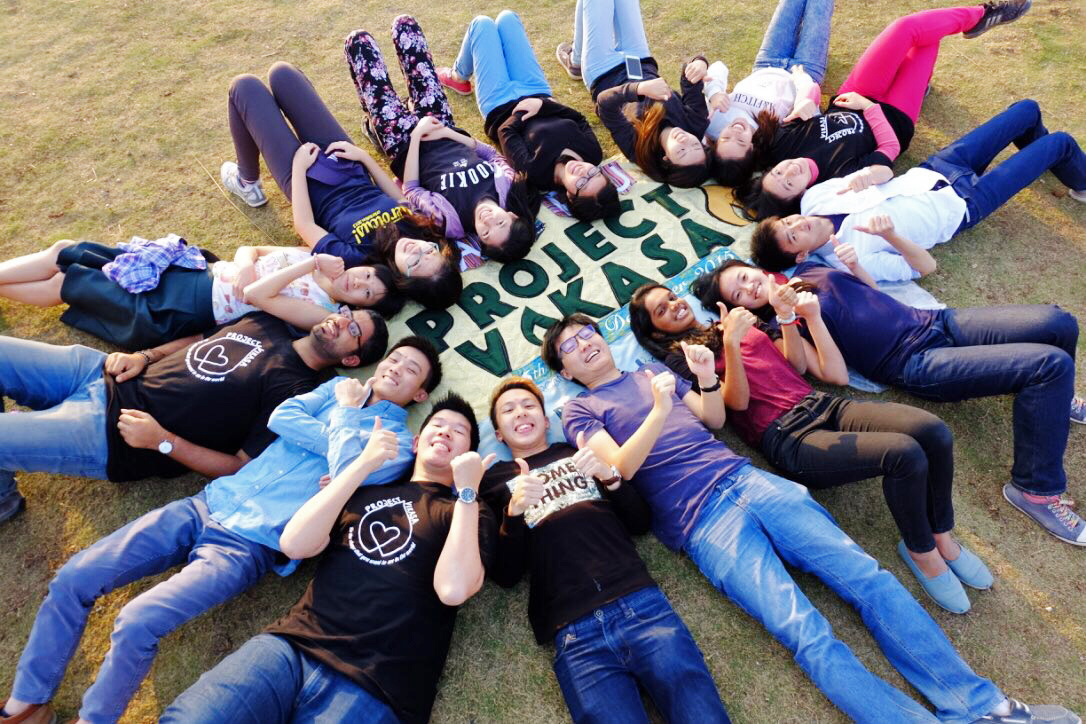By Dawn Kwa, SMU School of Accountancy
Project Vikasa was a two-week community service project to Jaipur, India, organised in collaboration with I-India, an NGO founded in 1993. The project’s aim was to empower women from six local slum districts by imparting a variety of entrepreneurial skills such as accounting, website management, and personal financial management. In turn, we hoped that these sessions would enable the women to improve the sustainability of their micro businesses and help them become more economically independent.
On this project, we were given the opportunity to utilise our hard skills and knowledge in a different, more meaningful way. We taught the women concepts on managing their finances, and for the project mentors, the IT skills they needed to run an effective business.
A lesson in personal financial management

Conducting the personal financial planning lesson
The session gave us the opportunity to really understand the challenges that the women faced in their daily lives. Getting to know their background was not an easy task for us since we did not speak their language, but in the end, it was great to see the women carry with them the hope and courage for a brighter future ahead.
Building an e-commerce store

Teaching the young girls IT know-how
To help the women at Ladli reach out to customers beyond India, we developed an e-commerce store called the Gudri Store. The mentors were taught how to use the interface to manage inventory and update the website. Our earlier sessions with the women had emphasised the need for income growth in order to have sufficient money to even start saving. Thus, the launch of the website was highly anticipated, as this would have finally been the solution that could enable the women to break out of the vicious poverty cycle.
Jhag village

Interacting with children at the Prem Pathshala School
The tour to various projects was an eye-opener to most of us as we witnessed first-hand the poor living conditions and understood the critical role that I-India played. We visited the community kitchen where meals were prepared, the makeshift school for street children, and a government school where lessons were conducted under a tree. Towards the end, we visited the Prem Pathshala School, which educates and houses around 400 children. Through this, we learnt that I-India has put in tremendous amounts of effort to run a sustainable education programme. It was heartening to see so many dedicated volunteers working so hard to make this initiative succeed.
Invaluable Lessons

Learning session with the women of Ladli
The community at Ladli had such a positive outlook on life despite their difficult economic and family backgrounds. One of the most awe-inspiring individuals was a mentor named Rupinder, who had such a cheerful disposition despite having to cope with illnesses. He is definitely a role model to look up to, teaching us to always look at life with positivity, regardless of how difficult one’s circumstances are.
We had much to learn from the women, who were filled with inquisitiveness, a true curiosity to learn, and were very open to our suggestions. They had a deep love and thirst for knowledge, which oftentimes seems lacking in Singapore.
The project was a good opportunity for us to get to know fellow peers from the SMU Scholar’s Programme (SMUSP) community. It was a fulfilling experience to meet like-minded individuals who were passionate about such a project.
As much as the women had learnt new skills and concepts from us, we have also learnt the value of patience, genuine service and a strong fighting spirit from them. This trip has taught us about how we should react to stressful situations. For example, when we had to do an inventory stock count at Ladli, we often had to juggle different jobs at once. Those five days really reflected on our ability to adapt to sudden changes. While some of us reacted to these changes with a negative mindset, the women and mentors, on the other hand, took these changes in stride. This taught us an important lesson on how we can better manage our attitude towards new and unexpected changes.
We also realised the importance of creating an environment of happiness. In Singapore, many of us take things for granted and often complain about our situation. In Jaipur, we noticed that the women always made it a point to create an environment of joy. One such example was a simple laughing exercise. While it seemed strange at first, we realised that these small acts go a long way in fostering a positive mindset and we are excited to start implementing this in our lives back home!

Final day in Jaipur













